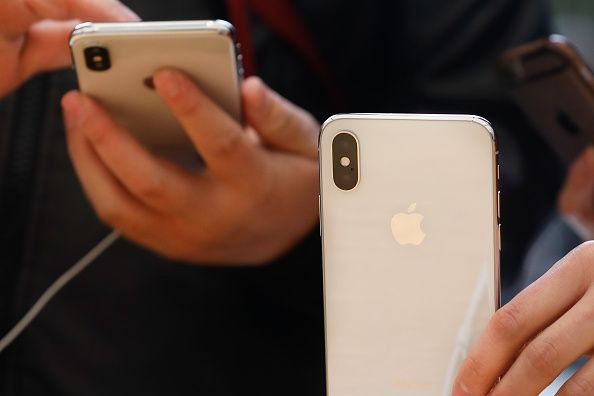Why Google Is Willing To Pay Apple $12 Billion Per Year

Apple (NASDAQ:AAPL) receives a lot of money from Google just for making it the default search engine in Safari on iOS and macOS devices. Last year, the Alphabet (NASDAQ:GOOG)(NASDAQ:GOOGL) company reportedly paid Apple $3 billion for the preferential placement. That number may have tripled this year, according to analyst Rod Hall as reported by Business Insider (link behind paywall). Hall says that number will rise to $12 billion next year.
This article originally appeared in the Motley Fool.
Apple has listed licensing revenue from deals like the one it has with Google as the first source driving growth of Apple's services revenue. That revelation in an SEC filing was a change from last year, when it listed the App Store first. That change suggests licensing revenue is growing extremely quickly for Apple.
However, investors should always ask why. Why is Google willing to pay billions of dollars to Apple to ensure its place in Safari?
Lots of valuable clicks
Apple has a 44% market share of U.S. smartphones and about a 12% share of PCs. But Apple users outpunch their weight when it comes to how much they use Google and click on search ads. Of all Google search ad clicks in the third quarter, 49% came from iOS and macOS devices, according to data from Merkle.
And that share may continue to rise as mobile grows and desktop searches decline in importance. Alphabet notes in each of its quarterly earnings reports and conference calls with analysts that the biggest contributor to its revenue growth is mobile search. Merkle's data corroborate that statement, as it notes U.S. spending on phone Google search ads increased 33% year over year in the third quarter compared to just 11% on desktop.
Furthermore, Apple users represent historically higher value than Android users. Spending in the App Store was nearly that of Google Play spending worldwide in the first half of 2018, according to data from Sensor Tower. That's despite Android's massive install base compared to iOS. Apple's premium product attracts consumers with money to spend.
So, not only do Apple users produce about half of Google's ad clicks in the U.S., those clicks are more valuable to advertisers than clicks on less-expensive Android devices. That means advertisers are willing to pay more per click.
Is Apple jeopardizing a growth opportunity?
In the latest iOS update, Apple included Intelligent Tracking Prevention. Intelligent Tracking Prevention is a system that makes it harder for third-party websites to track your history across the web. Instead of keeping cookies for the standard 30 days, Apple limits the use of cookies in most cases to just 24 hours unless the user comes back to the site again.
That sounds like a bad thing for companies like Google, which rely on collecting as much data on its users as possible. Merkle points out the share of Google search ad clicks from using data-centric audience targeting like Customer Match, similar audiences, and remarketing lists dropped at the end of the third quarter. That coincides with the release of iOS 12 in mid-September.
But the limitations Apple put in place may actually end up being beneficial for highly trafficked sites like Google.com, since it puts less-trafficked sites at a significant disadvantage in the targeting data they can use. If a user visits Google.com every day, Google won't see much impact in its ability to target ads on iOS devices. In fact, Apple just created an even greater incentive for Google to pay up for the default search engine spot, so users keep coming back to Google.com over and over again.
As Apple continues to provide a high number of quality leads to Google's search engine and makes it more difficult to track user behavior on its devices, Apple should be able to keep milking Google for billions in high-margin revenue every year.
Suzanne Frey, an executive at Alphabet, is a member of The Motley Fool's board of directors. Adam Levy owns shares of Alphabet (C shares) and Apple. The Motley Fool owns shares of and recommends Alphabet (A and C shares) and Apple. The Motley Fool has the following options: long January 2020 $150 calls on Apple and short January 2020 $155 calls on Apple. The Motley Fool has a disclosure policy.



















